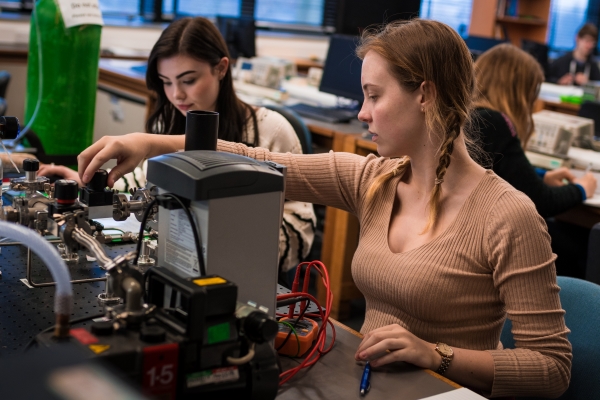Funding
Supervision
You will be supervised on a one-to-one basis by a member of the academic staff. We also offer opportunities for co-supervision, within the School and across the wider University, to support interdisciplinary projects. Your supervisor will help guide your progress, supported by a thesis advisory panel.
Before applying, we encourage you to learn about our academics and how their work and expertise fit your interests. Our academic staff are happy to answer any questions on their research interests or discuss a project you might have in mind.
Find a supervisor
Course location
This course is run by the School of Physics, Engineering and Technology.
You will be based on Campus West. Most of your training and supervision meetings will take place here, though your research may take you further afield.
We offer a distance learning (DL) option for the PhD programme if you cannot live in York full- or part-time. As part of the application process, we will ask for justification for taking the DL option and will then assess the feasibility of the work programme. The latter will be embodied in a plan of study outlining resources and facilities needed, training requirements and an associated timeline, which will need to be in place before being accepted onto the programme. Unless special arrangements can be agreed in advance, a research topic that requires specialised equipment and facilities may not be possible with the DL option.
Entry requirements
You should have, or expect to obtain, an MPhys degree at 2:1 or above, or an MSc in Physics.
We will also consider applicants with a Masters in a closely related field, applicants who have relevant industry experience, and applicants with a BSc at 2:1 or above where sufficient relevant experience can be demonstrated.
English language requirements
If English is not your first language you must provide evidence of your ability.
English language requirements
Applying
Advertised research projects
If you are applying for an advertised research project, please include the project name in your application. You should contact the project leader in advance, who may also ask you to submit a full research proposal. Advertised research projects may be funded or self-funded, as indicated in the advert.
Find a project
Research proposals
If you are not applying for a particular research project, you should contact the member of the academic staff you wish to work with, who may provide you with a research/project outline.
The research proposal needs to describe the nature of your proposed study and give some indication of how you will conduct your research. The purpose of this exercise is to ensure that you and your potential supervisor(s) have matching research interests. The proposal should be 250 to 350 words in length. It must be in English, and be your own words.
Apply for this course
Apply for this course (Distance Learning)
Find your supervisor


